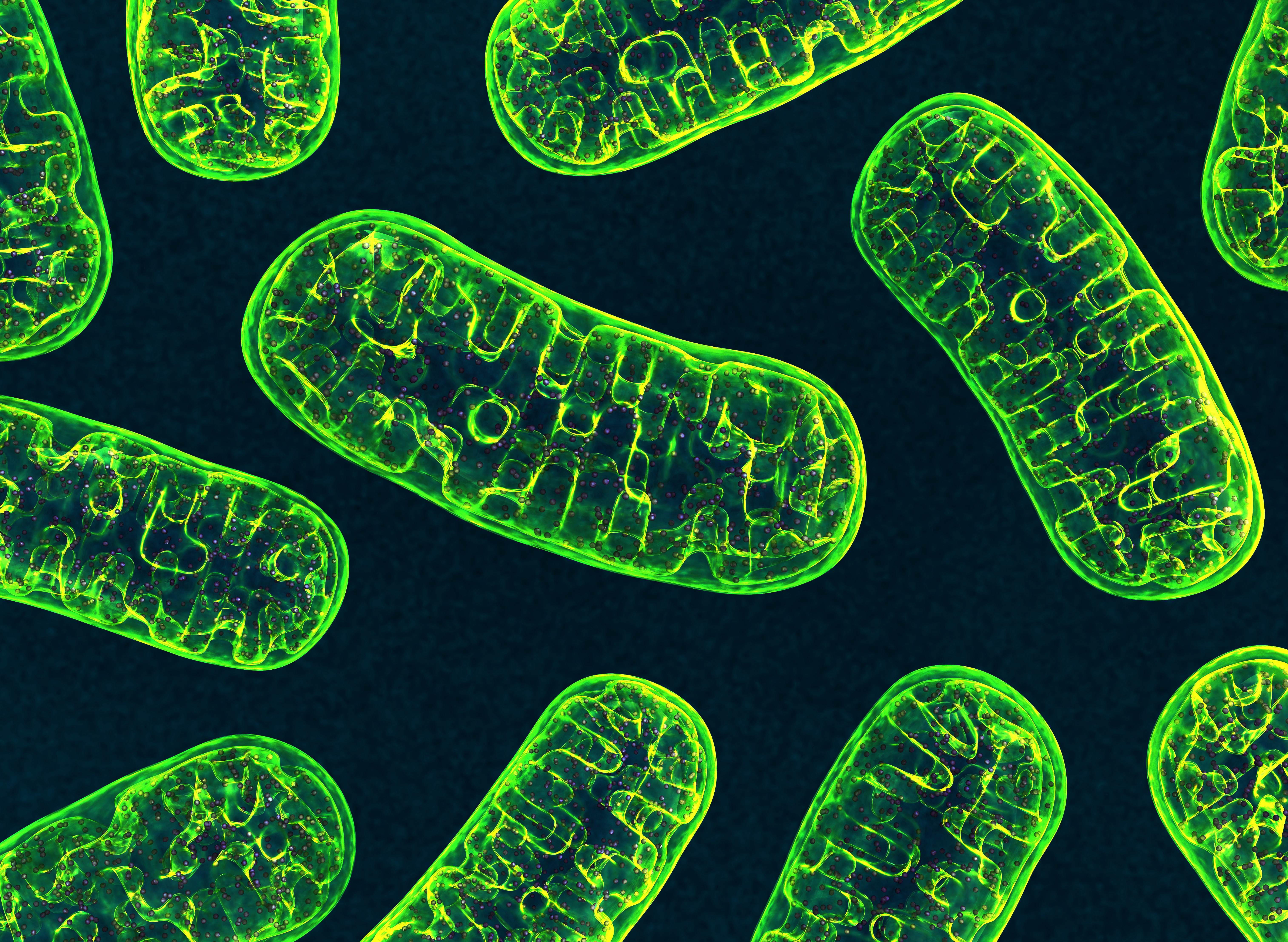Upgrade Your Cellular Health to Increase Healthspan
Wouldn’t it be great if we had the magical ability to switch on the literal creation of brand new cells that makes you biologically younger and stronger? To control inflammation, slow down the aging process and protect against neurodegenerative diseases? We do and these processes are called autophagy and mitophagy.
When our body experiences any form of cellular stress or demands such as exercise, fasting or even certain supplements, cellular resilience occurs. Remember that when the body perceives any challenge or stress (hormesis), autophagy occurs.
Autophagy is Greek for “self-eating,” and that’s exactly what happens: when you turn on autophagy, your cells realize it needs some housekeeping to take place. At a cellular level, our body is constantly destroying old cells and replacing them with new ones. Automatically replacing any damaged, unused, dysfunctional or old parts with brand new shiny versions. It allows the orderly degradation and recycling of cellular components. There is only one caveat however.. our ability to activate autophagy declines as we get older. Autophagy plays a critical role in the way your body responds to stress, maintains balance or homeostasis and regulates cellular function. Triggering autophagy on a regular basis is a powerful anti-aging strategy against all markers of aging and as we age, particularly around age 40, this mechanism begins to falter.
There is another form of autophagy that occurs and this is called mitophagy. This is where the critical mitochondria enters into the picture. Remember those tiny little organelles we learned about in school? They literally provide the life-energy of most every cell in our body. These mitochondria keep us alive and the healthier they are, plus the more we have of them…the healthier we are as well. In fact, our overall health is a reflection of our mitochondrial health. Unfortunately, they become damaged as we age.
Without mitochondria, then, we wouldn’t be able to get much of anything done. We simply wouldn’t be.
Mitochondria are tiny factories housed within our cells that take the foods we eat and the oxygen we breathe and convert them into energy called adenosine triphosphate or ATP. This energy is crucial in that it keeps us alive. Without robust mitochondria, cells cannot do what they’re capable of and why we need them to stay healthy. Mitochondria generate the ATP energy that fuels everything your body does from powering your heart beat, to contracting muscle, and even powering your brain to process information. The goal is high numbers of high-functioning mitochondria in your cells.
To achieve higher levels of performance we must optimize our mitochondria, the powerhouse of our cells.

What Then is Mitophagy?
Mitophagy is the selective degradation of mitochondria by autophagy. It often occurs to defective mitochondria following damage or stress.
If you are looking to transform your body, activating autophagy and mitophagy are crucial to optimal health, longevity, brain health, and protection from illness and disease.
When you optimize cellular health, you are ultimately activating autophagy and mitophagy in most cases.
Top Ways to Optimize Cellular Health:
Intermittent Fasting
The ancient wellness practice of intermittent fasting essentially gets rid of the old mitochondria and at the same time stimulates new growth. When we fast, it triggers an increase in the natural stress response in our cells called autophagy and mitophagy.
Some of the Benefits You’ll Receive:
•Weight Loss
•Abundant Energy
•Optimal Health
•Increased Satiety
•Autophagy
•Increased Numbers of Mitochondria including the Health of the Mitochondria
•Increased Muscle
•Optimized Gut Health
•Improved Blood Lipid Profile
•Increased Energy
•Increased Healthspan
•Increased Lifespan

Curb Inflammation
Keeping inflammation low is vital in optimizing cellular health. Low-grade inflammation is the core underlying cause of most illness, disease, faster aging and weight gain.
Eating a lower carbohydrate diet will optimize your mitochondria as well. Simply eating the ketogenic diet – a very low carb diet with higher fat will activate autophagy. When you eat lower carb, your mitochondria are happier as Mitochondria burn fatty acids cleaner than they do carbohydrates (glucose).
The simplest way to improve mitochondrial function is to rely less on excess carbohydrates such as sugar. This helps you become a fat burner vs a sugar burner which inevitably leads to inflammation and poor metabolic health conditions.
Keep Inflammation Low with These 9 Tips:
Eat leafy greens
Use plenty of herbs and spices
Add nuts
Exercise
Use the ketogenic diet
Use intermittent fasting
De-stress each day
Get quality sleep
Use targeted supplementation such as curcumin, fish oil (DHA/EPA) or Urolithin A

Urolithin A
Stimulating the creation of brand new, healthier mitochondria via mitophagy is one of the key features of the metabolite Urolithin A and a crucial element of aging slower and living a longer and healthier life. Urolithin A is a promising strategy to target health and disease conditions of aging, especially those linked to mitochondrial and muscle dysfunction. You can make it easy on yourself and use urolithin A that will promote healthier mitochondria and more of them.
Poor functioning mitochondria lead to oxidative stress, inflammation, low energy, weight gain and obesity, metabolic syndrome, memory loss, cognitive decline and rapid aging. Why? Because the mitochondria are not producing adequate ATP.
Unfortunately, only 30% of people have the specific gut bacteria that can produce urolithin A from foods such as pomegranates and walnuts. In other words, only some bacteria are able to convert ellagitannins into urolithins and that is the prerequisite. If you do not have these specific bacteria, you are out of luck. You could endlessly eat an enormous amount of pomegranates or drink buckets of pomegranate juice to potentially receive some.. or none at all.
Urolithin A is not found in food. It is the transformation of plant chemicals called ellagitannins by specific gut bacteria. You can find these ellagitannins in foods such as pomegranates containing the richest amount of elagatannins, nuts, some berries (raspberries, strawberries, blackberries), tea, muscadine grapes, many tropical fruits, and oak-aged wines.
Researchers have developed urolithin A so that even those who do not have the gut bacteria to produce it, will ensure they have it, positively changing gene expression. Additionally, the pre-clinical data that was published in Nature Medicine paper showed:
-
A 45% increase in lifespan of c. elegan worms
-
A 57% increase in running distance of older mice
Scientists have developed the first clinically tested pure form of Urolithin A called Mitopure to powerfully increase the cellular promoting effects of having more robust healthy mitochondria just as younger people do. Mitopure has published randomized control trials in animals and humans with overwhelming success.

Exercise
Adding high intensity interval training (HIIT) and resistance training to your cellular health protocol will have a powerful impact upon your overall health, weight, brain health, mental well-being and more. Both types of exercise will produce not just more mitochondria in your cells, but healthier ones. Exercise and autophagy go hand-in-hand. Shorter, more intense bouts of exercise is what autophagy loves.
What does this mean for you? You living a healthier and stronger life. Why? Because you have more healthy mitochondria and an abundance of them.
Deep Sleep
When we go to sleep we are activating natural ketosis assuming we do not get up and eat during the night when we should be sleeping. This also activates autophagy. Many individuals are not aware of the impact quality sleep has on their cellular health. Ensuring you get deep, restorative sleep will promote autophagy.
Lack of quality sleep, however, negatively interferes with body’s autophagy mechanism. Chronic diseases related to impaired autophagy mechanism can be a direct consequence of sleep deprivation. Additionally, sleep deprivation may decrease production of protective cytokines that naturally occur to keep inflammation low and even help you fall asleep. Long-term lack of sleep also increases your risk of multiple metabolic diseases such as obesity, diabetes, and heart and cardiovascular disease.
Ideally, 7-9 hours of sleep each night is a powerful facet of optimizing cellular health.





